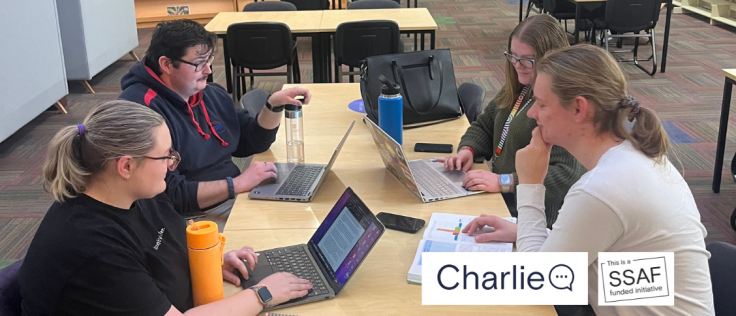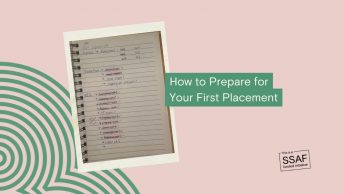Written by Eva Kent
Being diagnosed with ADHD and Autism Spectrum Disorder, I never imagined I’d be able to function in a university setting.
It all felt way too difficult; I was never a great writer in school. I had only been known for talking – far too much of it.
However, I realised that if I wanted to pursue my dream of becoming an Occupational Therapist, I would have to attend university.
I’m currently in my fourth year of my degree and have discovered a few valuable tips to help me along the way, which I’d like to share with you all in this article.
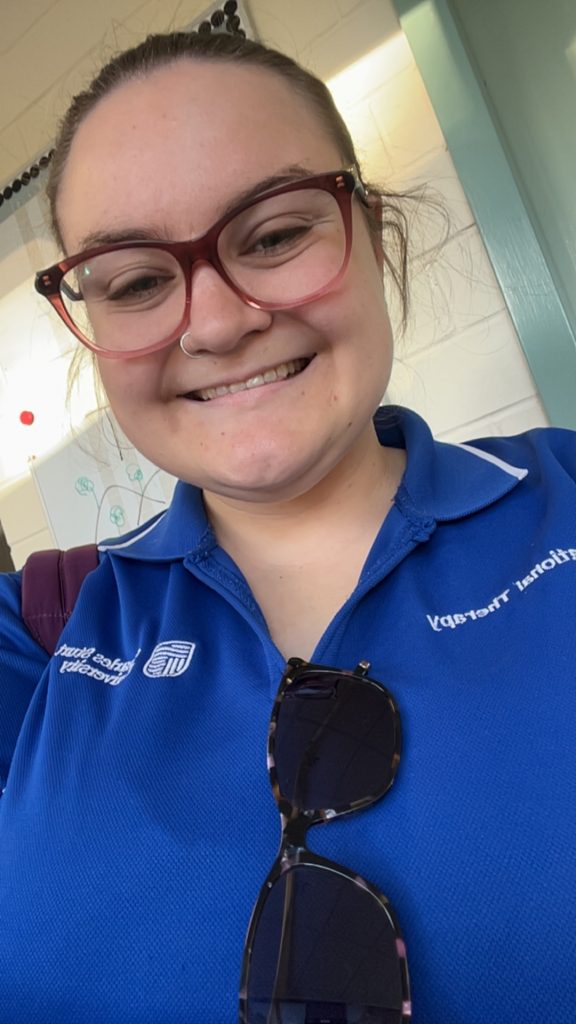
Ask for help
My first tip is to ask for help!
I learned this during a Charles Sturt open day in 2019. The incredible Accessibility and Inclusion team advised me to make an appointment, which I did.
I learned about Study Access Plans, library services, and using Assistive Technology to succeed in university.
Use Assistive Technology
My second tip – use Assistive Technology.
Programs like speech-to-text is great for those like me who can barely sit still to type a phrase.
Other great resources for making course materials and readings more accessible include screen readers, using a colour filter on your computer, or the Open Dyslexia font (which you can apply to your chrome browser to make everything more accessible to read).
Organisation is key
Tip number 3 – Organisation is key.
This is difficult for everyone, but it will help! A clutter-free study space transforms everything.
A disorganised desk can distract and worry you out, lowering productivity.
To boost productivity even more, try visualising your study load on a whiteboard or using a planner to prepare for classes, assessments, and exams.
Creating a daily to-do list might help you feel accomplished and avoid procrastination.
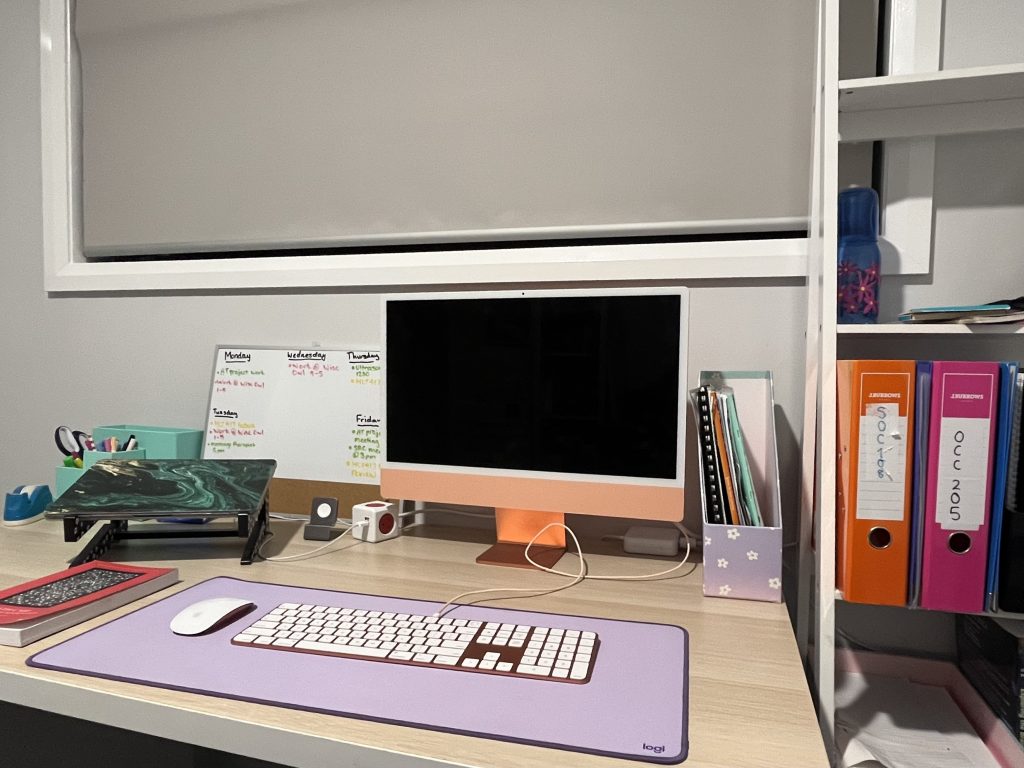
Procrastination prevention
Tip number 4 – Procrastination prevention!
Grab a friend or simply yourself and go to the library to study. Using a technique known as “body doubling” can help you stay concentrated on the activity at hand.
You’ll be shocked at how much you can accomplish when you’re surrounded by those who can help you stay focused.
Are you struggling to put down your phone? Using built-in focus modes or apps for productivity could help!
My favourite is Flora, because you can grow a small focus tree, make a to-do list, and donate money to help plant actual trees.
You can also organise group focus sessions and hold each other accountable.
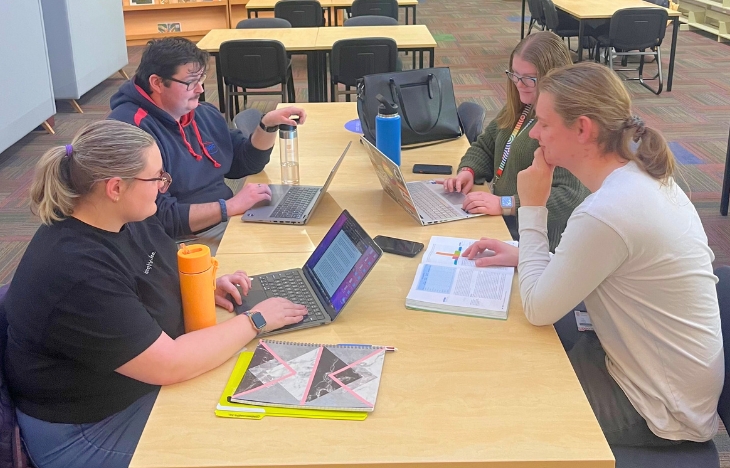
Study essentials
Tip number 5 – Study Essentials.
When I’m studying, I always need three things: food, water, and something to listen to. I always keep a healthy snack available, such as a piece of fruit or yoghurt, to help with concentration.
Having a water bottle on hand can help you stay hydrated and avoid headaches. I always keep some headphones with me so that I can listen to music; this helps me stay focused and blocks out other potentially distracting sounds.
Low-fi music with no words has been shown to be especially useful for learning, and there are numerous free playlists available on Spotify and YouTube.
Remember that this journey is your own, and you will succeed in the end!
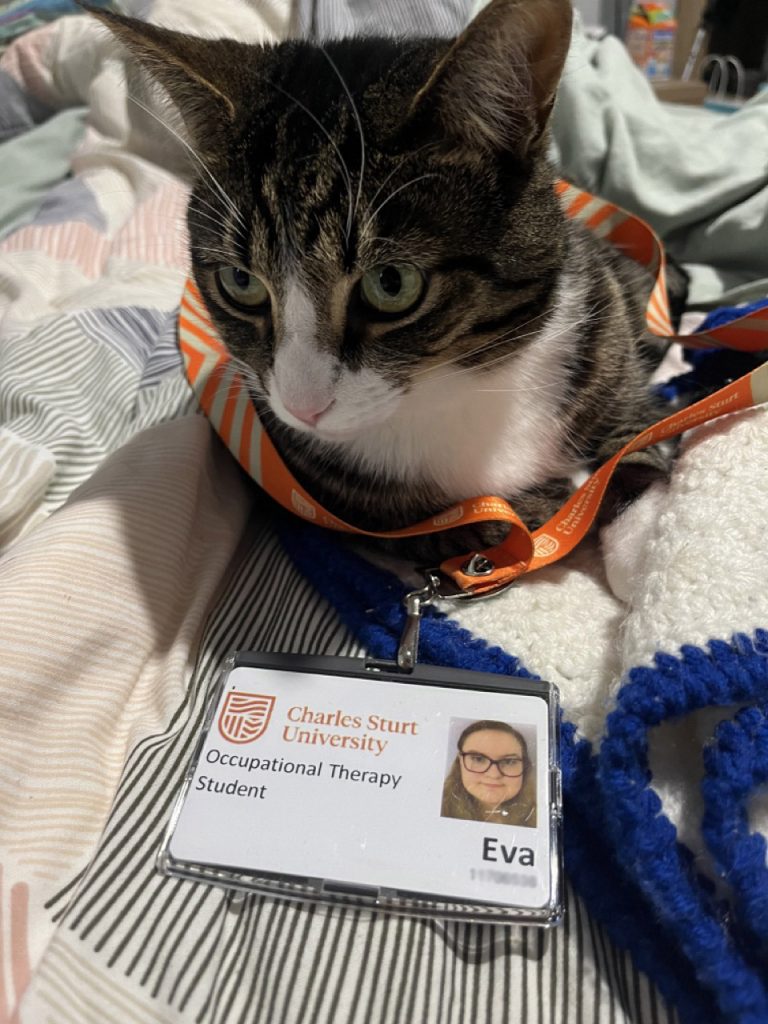
Charlie Blog is a SSAF funded initiative.


